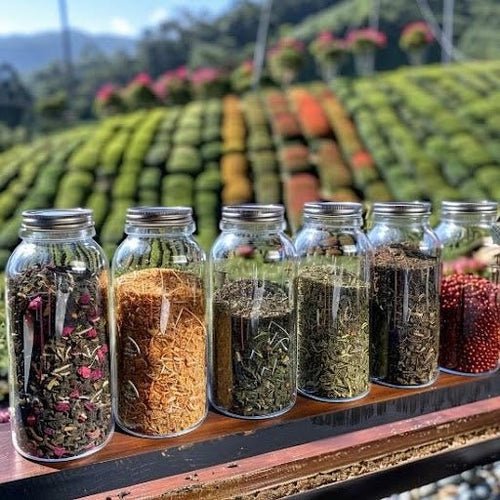We love our earth, a lot. Our planet, in the most perfect way, provides us with everything needed to sustain not just human life, but a countless array of beautifully diverse living things. Unfortunately, we have not always done the best job of taking care of our home. However, since the first Earth Day on April 22, 1970,

which is considered the birth of the modern environmental movement, things have changed. And since the first Earth Day, we have done a much better job of factoring in the impact of the decisions we collectively make as humans on our home.
One of the most positive changes that has occurred over the last 5 decades is a shift back to farming and growing practices that are considered Organic. How does organic farming help our earth and why should you support organic products? Let’s explore:
Reduced Chemical Use: Organic farming avoids synthetic pesticides, herbicides, and fertilizers. These chemicals can harm soil health, water quality, and biodiversity. By choosing to purchase organic products, you're supporting agricultural practices that minimize these harmful inputs that without question leads to the destruction of our environment.
Soil Health: Healthy soil retains water better, reduces erosion, and promotes biodiversity, ultimately supporting more resilient ecosystems. Organic farming techniques prioritize soil health through practices like crop rotation, composting, and the use of natural fertilizers.
Biodiversity Preservation: Organic farms often harbor greater biodiversity than conventional ones. They provide habitats for a variety of plants, insects, birds, and other wildlife, contributing to ecosystem stability and resilience.
Water Conservation: By promoting soil health and employing water-saving techniques like mulching and drip irrigation, organic agriculture helps conserve water resources. Organic farming tends to use less water than conventional methods.
Reduced Energy Consumption: Organic farming typically requires less energy input than conventional agriculture, which relies heavily on synthetic fertilizers and pesticides. By choosing organic products, you indirectly reduce the demand for fossil fuels and the associated greenhouse gas emissions.
Climate Change Mitigation: Organic farming practices, such as composting and crop rotation, can sequester carbon in the soil. Healthy soils act as carbon sinks, helping to mitigate climate change by removing carbon dioxide from the atmosphere.
Support for Sustainable Farming Communities: Buying organic products supports farmers who prioritize environmental stewardship, animal welfare, and fair labor practices. Organic certification standards often include requirements related to worker health and safety, fair wages, and community engagement. By supporting organic agriculture, you're helping to build resilient and sustainable farming communities.
Make the choice. By buying and using organic products, we all can play a significant role in promoting environmentally friendly agricultural practices and fostering a healthier planet for current and future generations.

We at Sweet Bee Naturals are doing our part. We are proud to say, unlike most of our competitors, all of our products are made with USDA Organic certified ingredients, including organic honey and propolis that are made bees, some of the most important workers in our food chain. Check out our certified organic skincare products that are not just good for your skin but that are also good for our planet!



